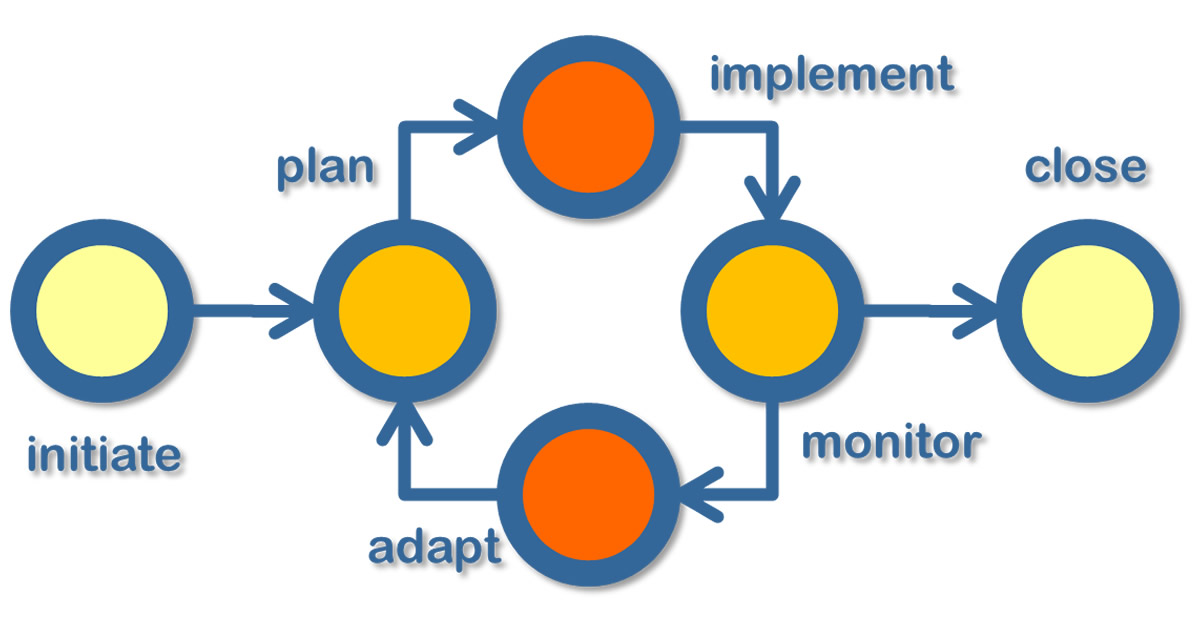 A project management methodology follows a cyclical approach throughout the life of the project. The cycle represents a continuous process in which each phase provides the foundation for the next. For example, during implementation the monitoring phase provides inputs and changes to the original design which then the project managers uses to modify the implementation plans. The cyclic nature among the design, implement and monitor phases is repeated throughout the life of the project.
A project management methodology follows a cyclical approach throughout the life of the project. The cycle represents a continuous process in which each phase provides the foundation for the next. For example, during implementation the monitoring phase provides inputs and changes to the original design which then the project managers uses to modify the implementation plans. The cyclic nature among the design, implement and monitor phases is repeated throughout the life of the project.
The project management cycle consists of six phases:
- Initiate
- Plan
- Implement
- Monitor
- Adapt
- Close
The cycle allows for a constant, iterative process by which the project is constantly adapted, this repetitive cycle continues until all project activities and objectives have been delivered. The cycle approach allows opportunities to review the original project assumptions and plans, as the project makes progress the initial conditions could have changed making it necessary for the project to change course or readjust the original plans.
Managing a project is not a linear process, it is cyclical; with each phase receiving feedback from the preceding phase. For example, during the monitoring phase the project may encounter that the original assumptions about an activity have changed which leads to propose a readjustment of the plans, either in schedule or in scope. No situation in which a project intervenes is static, project management is a cycle that is continually repeated to adapt to a changing context.
The project management cycle continues in a spiral fashion until the project is completed and closed. For larger projects the phases may be broken down in smaller manageable phase, each with its own project management cycle, where the closure of the first phase of a project leads to the initiation of the second phase.
The application of project management is an iterative process. For example, within the planning phase, several iterations of planning may occur as the team develops the best approach and methodologies to implement the project. This process requires additional improvements and refinements to the schedule, budget estimates, quality requirements and risk plans.
As improvements start to occur, the impact to other project management areas must be determined. Over time, the iterations should become smaller in magnitude and more defined as more detailed information about the project is developed. Each project’s management cycle is a knowledge cycle in itself that shapes the initial design and is fed by experience from each implementation and evaluation cycle.
Learn how to initiate, plan, implement, adapt and close a project that meets the needs of the beneficiaries and expectations of key stakeholders. The APM online course will introduce the elements of the project management lifecycle. You will learn the methods for the efficient management of a project using a phased approach, and the concepts and practices necessary for the success of your management efforts. This course is open for all those who work or plan to get a job with the development cooperation and humanitarian field.
Register now and earn your certificate in Adaptive Project Management with a 20% early registration discount.

